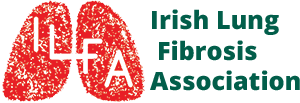Tip of the week
Hospital Visits
If you have a hospital appointment or tests coming up, try not to be too anxious about visiting the hospital. Rest assured that all safety measures and precautions are in place to ensure your safety and the safety of staff.
A member of the team may contact you in advance of your appointment to see how you are doing, to talk you through the procedures for attending the hospital and to discuss how you will be seen and your tests carried out.Although the timing and way in which things are done has changed, hospitals are open and safe. Remember to wear a face covering, wash your hands, use alcohol hand-gel if necessary and maintain social distancing.
1) Don’t keep putting things off
If you constantly put things off until another time, you won’t be able to catch up with yourself. The longer your “things to do” list is playing on your mind, the more stress it will cause you. Try to do one extra thing each day and don’t be afraid to ask for help.
2) Taking tablets
Sometimes having to take lots of tablets or large pills can be difficult for patients. It is important to take your time and be patient when taking your medicine. Try taking a few deep breaths to relax and then swallow your pills slowly one at a time. Have a glass of water to hand. If you find it difficult to swallow tablets, try taking them in a spoonful of yoghurt
3) Medication
If you are prescribed a new medication, always ask your doctor and pharmacist what the medication is for. You should ask for clear instructions on how you should take the medication, how often you should take it and at what time, and if you need to take it with food or not? All medication can cause unwanted side-effects and its a good idea to know what these are and to tell your doctor if you feel unwell or develop new symptoms.
Never take Over-The-Counter (non-prescription) medication without checking with your doctor or pharmacist first, in case there could be a drug interaction with your regular medication.
4) Good hand hygiene and clean hands can help protect against infection
Read this valuable advice from the Mayo Clinic to learn about the ‘Do’s and Don’ts’ of hand washing, understand when to wash your hands, how to properly use hand sanitiser and how to get children into the habit.
https://www.mayoclinic.org/healthy-lifestyle/adult-health/in-depth/hand-washing/art-20046253
5) Self-isolate to stay safe
All patients diagnosed with lung fibrosis (pulmonary fibrosis) should immediately self-isolate if not already doing so. This advice was communicated to ILFA today by respiratory consultants and is essential to ensure your safety as a vulnerable patient with a serious underlying rspiratory condition.
In addition, wash your hands often, avoid touching your face, do not shake hands or have close physical contact with others.
For information on self-isolation, please see
https://www2.hse.ie/…/self-isolation-and-limited-social-int…
Stay safe everyone
Go Back
